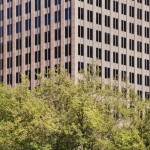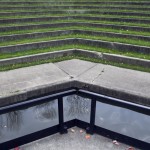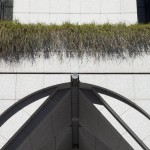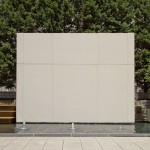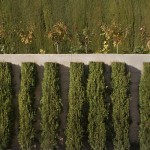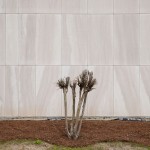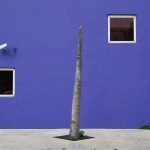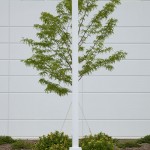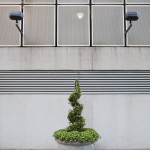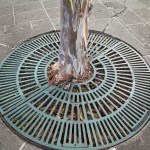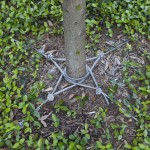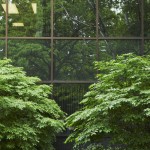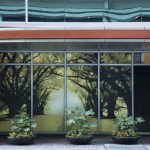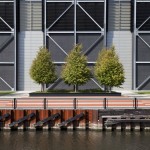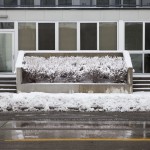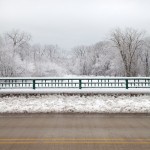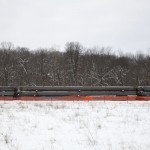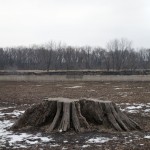My work examines the intersection of humanity, nature and culture and how images serve to construct our understandings of nature. I am attracted to the contradictory realities I perceive in a world where nature is increasingly transformed, reduced and abstracted. The resilience of human culture is being tested on a global scale by its own successes and failures. Nature and humanity are simultaneously in conflict and inextricably intertwined. My work deals with the tensions this creates.
Historically our species has adapted to the natural environment by exploiting and altering it to suit our needs—whether real, contrived or imagined—as well as a desire for cultural and technological progress. Over time civilization gradually replaced wilderness as the dominant environmental paradigm. Humanity’s classic struggle between order and chaos has led to alienation from the natural world. The visual culture has generally conspired to promote both the dominant paradigm and the myth of progress.
In my lifetime there has been a reawakening to the importance of ecological relationships along with restoring and maintaining a healthy biosphere. I am sensitive to the tensions and narratives of living in an environment that is increasingly compromised or redeemed by our own actions. These actions include the generation of images that help shape cultural perceptions and changing circumstances. It is entirely possible that nature has become what we humans make of it. If so, then we are responsible not only for how we change it but also how we perceive it. Imagery drives perception and perception drives action.
- Tranquility
- Water Park
- Hard Environment
- Fountain
- Rose
- Shorn
There is, of course, a long tradition in the visual culture, and photography in particular, as it relates to the land and the environment. With the “New Topographics” of the late 20th Century, photographic representation of the land shifted from sublime Romanticism to dispassionate critique. Today, the paradigm continues to shift, to express altered global contexts and concerns. My work has been informed not only by the changes I’ve experienced in the world around me but also by these changes in photographic representation. In my work I try to integrate human and natural realms and to envision a changed relationship with nature—one both re-enchanted and complicated by newly challenging realities.
I have used the paradoxical term Urban Wilderness to symbolize the complexity of my creative responses to these realities. Rich with hope as well as contradiction, the term Urban Wilderness has provided a conceptual underpinning for a number of recent projects.
My latest body of work is entitled Synecdoche, a literary device in which the part represents the whole. Individually, my photographs are metaphors—visual examples of synecdoche that symbolize both the fragmentation we experience in our everyday environment and cultural strategies for reassimilating with nature. Collectively, as in this photo essay, they create visual and conceptual relationships that are meant to stimulate new understandings about the meaning of nature and our place within it.
- Palm
- Cultivar
- Twist
- Square the Circle
- Grip
- Curtain Wall
- Live Oaks
- Industrial Strength
- Hedge
In Synecdoche the Urban Wilderness concept is distilled. Using the square format (a shape rarely found in nature) abstract geometries within the frame resist three-dimensional space. Paradoxically, the images also are concrete, rooted inescapably in the actual world. My intention is to achieve a balance between abstraction and realism that expresses the tensions between order and disorder and between the civilized and the wild that I see as central to the human condition.
Hard Ecology: Rethinking Nature in an Abstract Landscape is a photo essay of selections from the Synecdoche Series that establishes a narrative with no real beginning or end. Instead it poses a closed loop, a sequence of interrelated images derived from an abstract landscape. If ecology is the science of relationships in the natural world, then it is a hard ecological lesson to incorporate our own species’ effects on that world.
- Over the River
- Ecotone
- Truncate
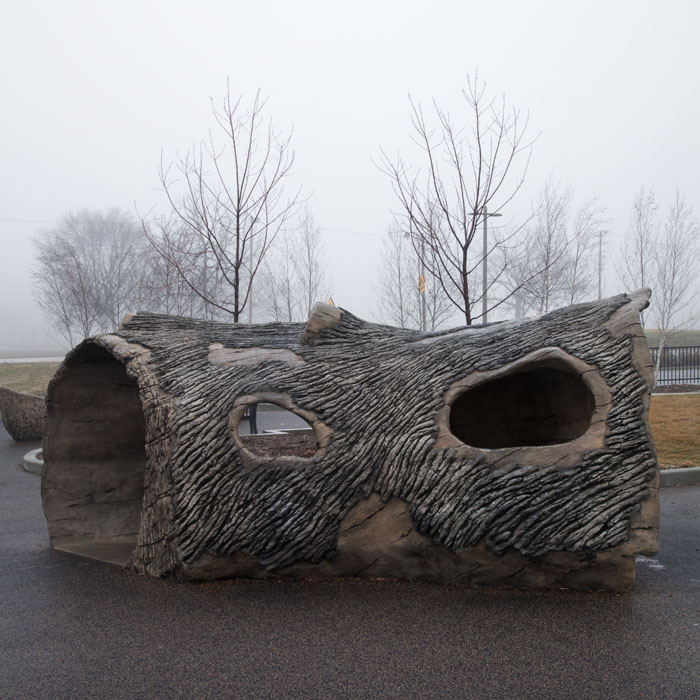
Playground

